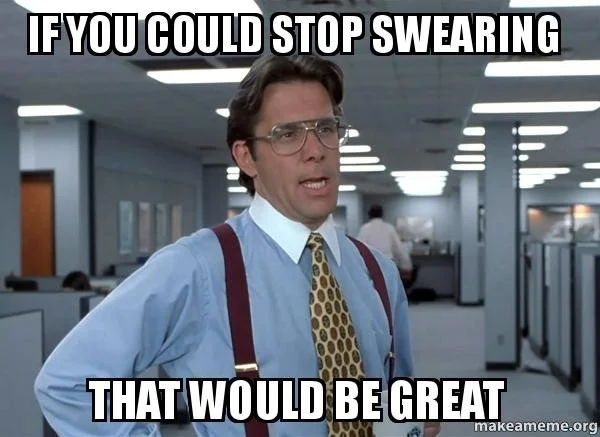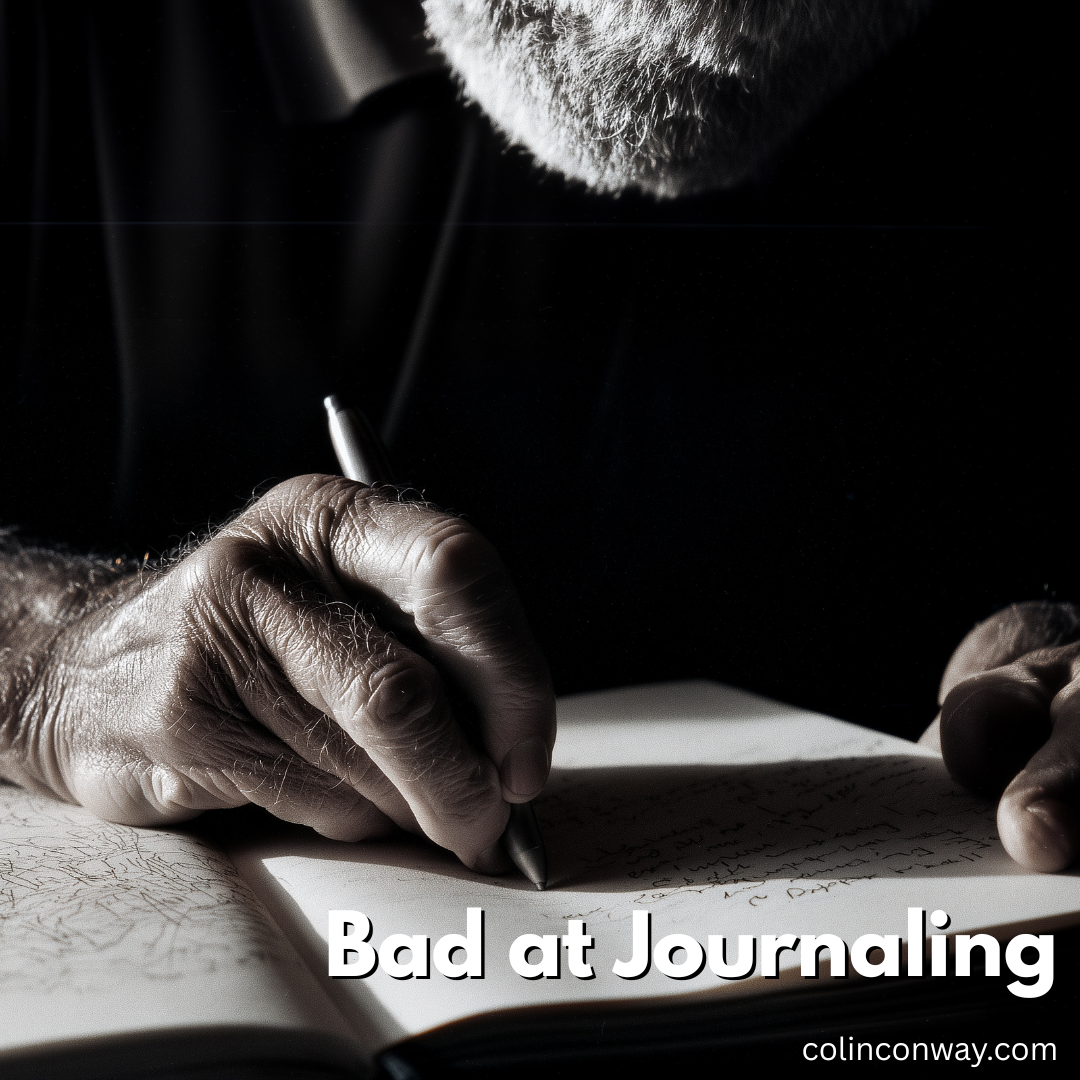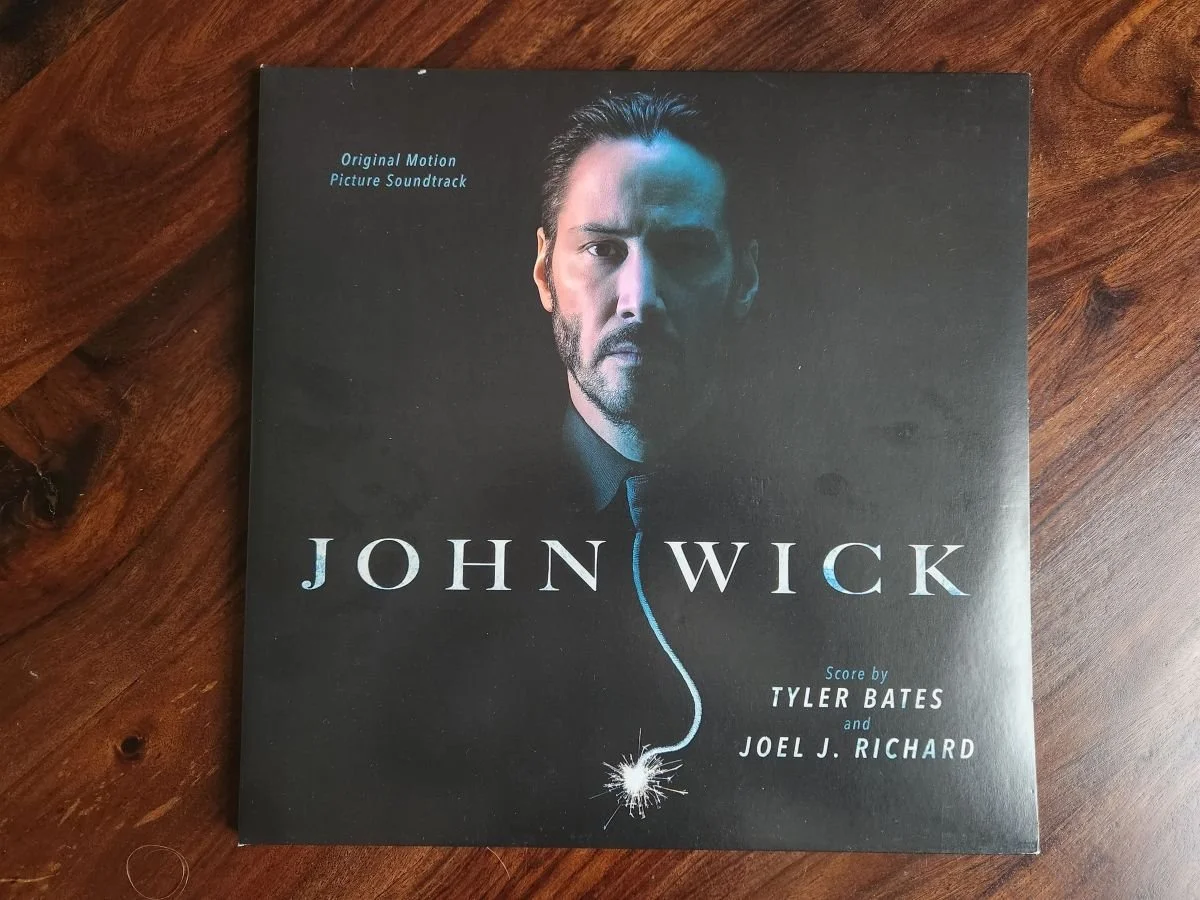To Swear or Not to Swear? That's the Effin' Question
If naughty words offend you, turn away immediately.
If you continue to read and get offended, it’s your fault—last warning.
In An Unfinished Story, I shared a letter from my dad written twenty years ago. He mentioned that it was “nice to see something without a lot of swear words and cussing.”
My initial writing attempts were fueled by anger. I explained this further in The 17 Year Journey of John Cutler, but I was unhappy following my first divorce. I didn’t know how to handle my emotions, and they poured onto the page, often accompanied by dirty words.
Some authors throw curse words around like they’re channeling a Quentin Tarantino movie. I was guilty of this. As I grew as an author (and a person), I realized that swearing on the page is an art form and should be done sparingly.
If everything is special, then nothing is special. The same applies to swearing. If every character is swearing, then no one is swearing; they’re simply talking, and the foul language has lost its power.
Authors waste the energy of a well-placed “fuck” when the entire novel is a constant stream of fuckity-fuck-fuck-fucks.
It’s better to hold onto those swear words like little pieces of dynamite and use them when they’re going to get their best bang.
Gimme an Effin’ Break
For many years, salty words filled my mouth.
This bad habit started as a young teenager. A boy’s easiest rebellion is uttering words like “shit” or “fuck” when his parents aren’t around. Those words are the basis of any good swearing vocabulary. As I grew, I learned that those two words could be compounded with others to create a few bigger and more powerful words. Just adding simple prefixes like horse-, bull-, or mother- could make my cursing sound much cooler.
I followed those teen years with a stint in the Army. That time sharply increased my use of the F-word to include modifiers like cluster-, goat-, -stain, -stick, skull-, and eye-. One morning, my drill sergeant told me to stop eye-fucking him. I’d never heard the term before, but I instinctively knew what he meant. I never stared his way absently again.
Then there were the legendary acronyms like FUBAR and SNAFU. If you don’t know what those are, you were never in the military. They were tossed around daily about everything from our jobs, the chow hall, and our relationships with local girls.
After the Army, I spent five years as a police officer. This experience honed my use of foul terms. New F-bombs were discovered by adding suffixes like -nuts, -wits, and the socially questionable -tard. These terms weren’t as aggressive as the military, but they were far more derogatory.
With all these versions of the F-bomb floating about in my head, it’s no wonder that the occasional ‘fuck’ fluttered out in casual conversation.
Then I got a girlfriend who didn’t like that kind of language. Love is where these kinds of stories always change. Either the hero goes on a redemptive arc, or he drinks alone.
Since I’m not sitting by myself at the end of a bar and swearing into my beer, you’ve probably guessed that my use of foul language has dramatically decreased.
And that’s a good thing.
There’s a Time and Place for a Good F-Word
Swearing or the lack thereof can reveal a lot about a character.
The Suit (book 4 of the 509 Crime Stories) received a 1-star review due to my decision to have a crew of bad guys swear.
“Why do writers seem to feel the need for foul language? I just finished another book in this series and thoroughly enjoyed it. Even though the character uttering this word appeared to be a low life, there was no need for him to curse like this.” – Gloria/Amazon Reviewer
The reviewer was nice enough to point out that she’d read another book in my series and “thoroughly enjoyed it.” However, the miscreants swearing in this story were too much for her.
But I made that choice on purpose and would do it again. It was the right decision.
In The Suit, the story was told from various points of view, including the bad guys. I needed them to swear so that they stood out dramatically from the police.
Yes, I know that cops swear, and they do it proudly and proficiently. I mentioned it above.
But if I had the officers swearing along with my bad guys, no one would sound any different. It was essential to distinguish between the heroes and the villains, and their word choices were just one way to do it.
Most of the protagonists in my 509 Crime Stories rarely swear. The only one who does with any frequency is James Morgan, and that’s for a reason. He needs to stand out from my other leads. He’s a character who has some dirt on him—or, as another reader pointed out, he has muddy shoes.
When Morgan appears with other cops, he’ll swear. This immediately makes him appear differently—slightly rougher around the edges and perhaps cruder. Maybe readers don’t notice it, but that’s why it’s there. Like the villains in The Suit, it was an intentional decision.
Knowing How Much to Swear
Two of my favorite series of all time—Richard Stark’s Parker series and John D. MacDonald’s Travis McGee series—had limited cursing. This did little to impact the realism or entertainment value of each book.
However, I’m not going to tell other authors that their books should never contain swearing. That’s ridiculous.
There is a whole genre of mystery novels written without cursing. Cozy mysteries contain no swearing. I wrote the Cozy Up series in this genre and have found it a delightful experience. I love the character of Beauregard Smith and the reason behind his not cursing. I also like limiting the swearing of others in the stories.
I also avoided foul language in the Flip-Flop Detective series. I decided to write those crime novels without any bad words. There are plenty of fight scenes and hints at sexual encounters, but the swearing was abandoned.
There is cursing in the 509 Crime Stories, the John Cutler Mysteries, and the Charlie-316 series. Swearing happens in real life, and it’s naïve to think it doesn’t.
It’s not easy to know when and where to have a character curse. Sometimes it’s easier to write the story and let the bad words fall where they may. Then they can be deleted or tweaked during the editing process.
One of the things I’ve learned to do while reviewing is search for swear words. Seeing them one by one during a read-through is different from seeing a total number.
For example, if Word reports that there are five instances of the word F-word in a 70,000-word manuscript, I’m apt to think that’s not so bad.
However, if there are 50 appearances of some variation of the F-word in that same manuscript, I’m likely to think, “Yipes. What the heck was I thinking?
What do you think about swearing in books?
Does it bother you? Does it enhance a character?
Let me know your thoughts below.






